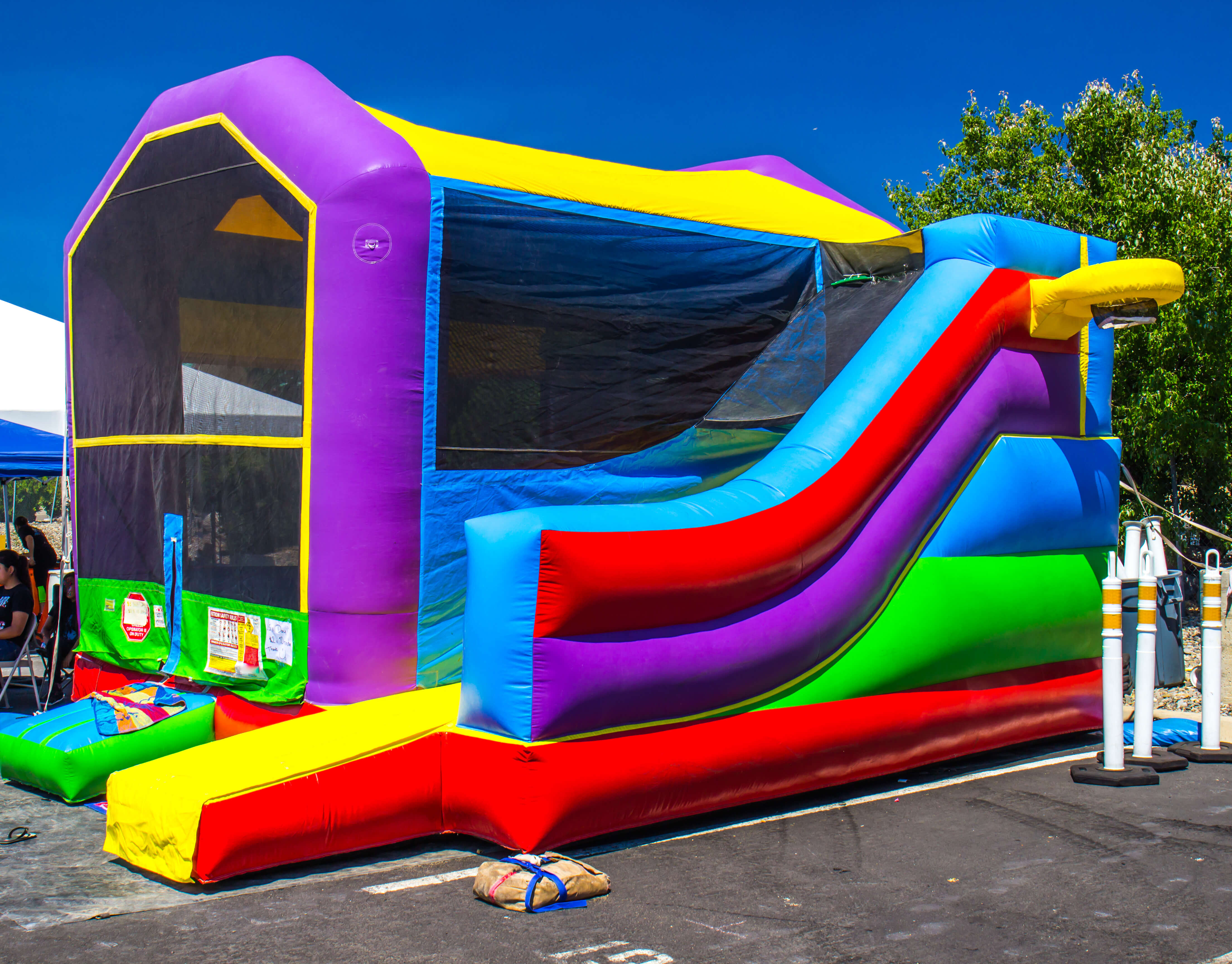Kids love bounce houses. If they see one at a party, they go running. If the thought of this makes you want to start nervously biting your nails, don’t feel like a helicopter parent.
Why? Because the reality is that bounce houses may be more dangerous than we think.
Quick Stats about Bounce House Injuries
We don’t want to scare you, but the facts are the facts. Bounce house injuries are on the rise, causing harm to tens of thousands of children every year:
- About 90% of inflatables-related ER visits have to do with bounce house injuries.
- In 2010, a child got injured on a bounce house once every 46 minutes.
- A third of these injuries included children under the age of six. (The Consumer Product Safety Commission recommends that children under the age of six should stay out of bounce houses altogether.)
- Half of all states do not have government regulations concerning bounce houses. In 2016, an investigation conducted by WFTV-9 revealed that Florida is one of these states.
Why Do Florida Children Get Hurt in Bounce Houses?
Too many children are present (or not enough adults)
Bounce house injures include concussions, broken noses, and even spinal trauma. A lot of bounce house injuries occur when two children knock or fall into each other.
Bounce houses often have instructions that recommend the number of children allowed in a bounce house at one time, or how much weight the bounce house can hold. If there are too many children in the bounce house, it is always best to wait until some leave before letting your child play.
Additionally, you need to make sure that adults are watching children as they play. If children get too rowdy and start to do flips or somersaults, the risk of injuries could be even higher. Bounce house manufacturers may also print instructions for what children can and cannot do inside a bounce house, and adults who are standing by should be aware of these rules.
Children or adults enter the bounce house with dangerous objects
We’re not talking about knives here – or even pointy sticks. These “dangerous objects” mostly wouldn’t even be considered dangerous outside of a bounce house: keys, beer bottles, glasses, and so on. If any of these objects fall out of a person’s pockets or hands and a child slips or steps on them, they may face increased injuries.
Make sure that you, your child, and other bounce house attendees take off their shoes and glasses before they enter the bounce house. Attendees should also empty their pockets and place any items that may be hanging off their person aside.
Bounce houses are not secured properly
Bounce houses flying away in the wind. The image may sound amusing, but it really does happen, and it can cause serious injuries. Bounce houses have been known to fly dozens of feet off the ground because they were not properly secured.
If your child is at a party that has a bounce house, check with the homeowners about what they have done to secure the house. The same rules apply if you are at an amusement park or other business that has a bounce house present. If you are renting a bounce house, make sure that you read instructions very carefully.
Also, be sure that you check the weather before you rent or enter an outdoor bounce house. If the weather includes heavy winds or thunderstorms, it’s best to leave the bouncing for another day.
Was Your Child Injured in a Florida Bounce House?
Unfortunately, accidents do happen, but there are many steps along the way that can prevent most bounce house injuries. If your child was injured in a bounce house and medical bills are piling up, you may be entitled to compensation. Even though Florida does not have government regulations regarding bounce houses, you may still be able to file a personal injury case against the parties responsible for your child’s injuries.
Before you file, though, reach out to a Florida personal injury lawyer. The following factors could affect how you go about the case:
- Who was “in charge” of the bounce house (amusement park, party hosts renting from manufacturer, etc.)
- The warnings on the side of the bounce house
- Any liability waivers you signed before entering the bounce house
- The injuries that occurred
- Any reckless behavior your child engaged in before entering the bounce house.
You can’t stop every accident from happening – especially when dealing with the negligence of others – but you can protect the rights of your child and your family by fighting back and holding responsible parties accountable.
About the Author:
Jeffrey Braxton is a trial lawyer in Fort Lauderdale who has devoted his career to the practice of personal injury law. As lead trial attorney for the South Florida Injury Law Firm, Jeff has litigated thousands of cases and is a member of the Million Dollar Advocates Forum, an exclusive group of attorneys who have resolved cases in excess of one million dollars.




